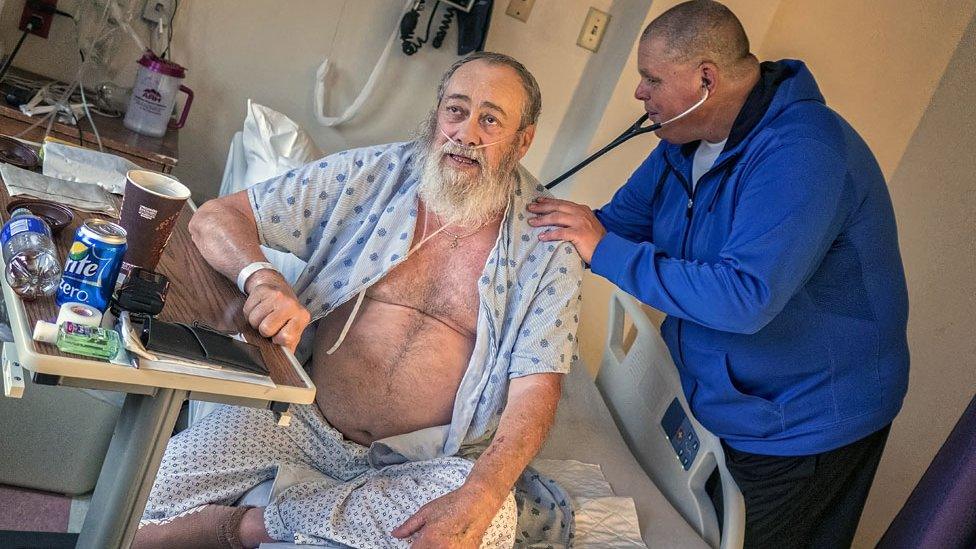Republican push to repeal Obamacare collapses
- Published
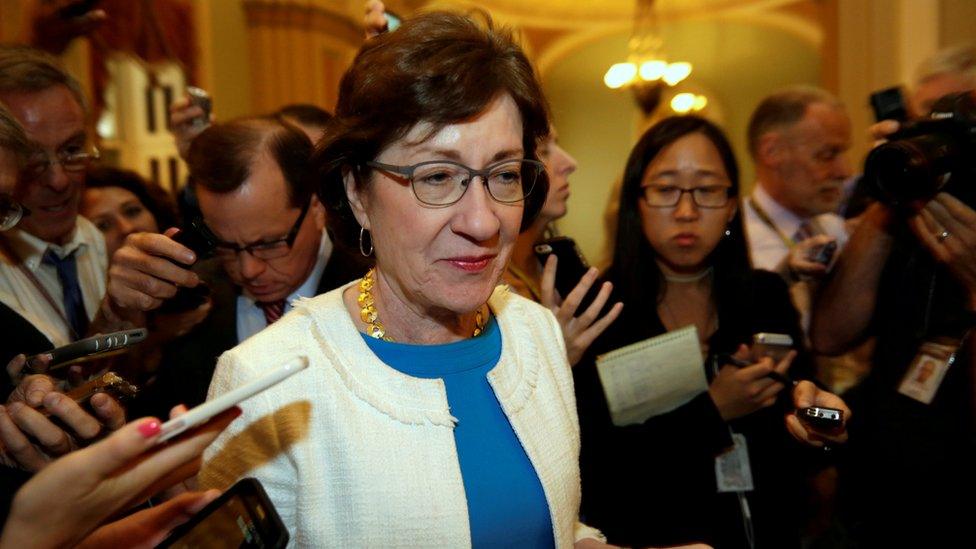
Senator Susan Collins, a moderate Republican from Maine, said the bill is "deeply flawed"
A Republican plan to replace Obamacare will not be voted on this week, effectively signalling its collapse.
The party leadership withdrew the beleaguered bill after a third "no" vote emerged.
Susan Collins said she could not back the "deeply flawed" bill, despite a call from President Donald Trump and promises of money for her state.
It was a major blow for the president and Republican leadership, who have made Obamacare's repeal a top priority.
They could only afford two rebel senators to pass the bill, and were working to a deadline of the end of this week.
They now turn their attention to tax reform.
The party's last attempt to undo former President Barack Obama's 2010 healthcare law collapsed in July.
Ms Collins, a moderate Republican from Maine, said she objected to the Graham-Cassidy bill's sweeping cut in funding to Medicaid.
One in five people in her home state depend on the programme for low income citizens and disabled children.

What now? Anthony Zurcher, BBC News, Washington
Republican attempts to push through healthcare reform just days before a procedural deadline was always a long-shot to succeed.
The objections some Republican senators had to earlier versions of the bill - that the deliberative process had been short-circuited, that guaranteed protections for patients were being weakened, that it contained sweeping cuts to Medicaid healthcare for the poor - were never fully addressed.
With some conservative senators also growing uneasy with what they viewed as halfway measures in the legislation, the narrow window for success quickly slammed closed.
Republicans now head back to the drawing board. There's no reason they couldn't start the wheels turning for another vote in the months ahead, perhaps folding it into ongoing tax reform efforts. Or, conceivably, the Senate could simply change the rules to make passage of a comprehensive bill easier, as Donald Trump has suggested.
None of that alters the simple dynamic made clear over the past months, however. The Republican Party, despite campaigning ferociously for Obamacare repeal for nearly seven years, could never agree on how to turn their promises into reality.
The question now is whether they'll pay a price for their failure in elections to come.

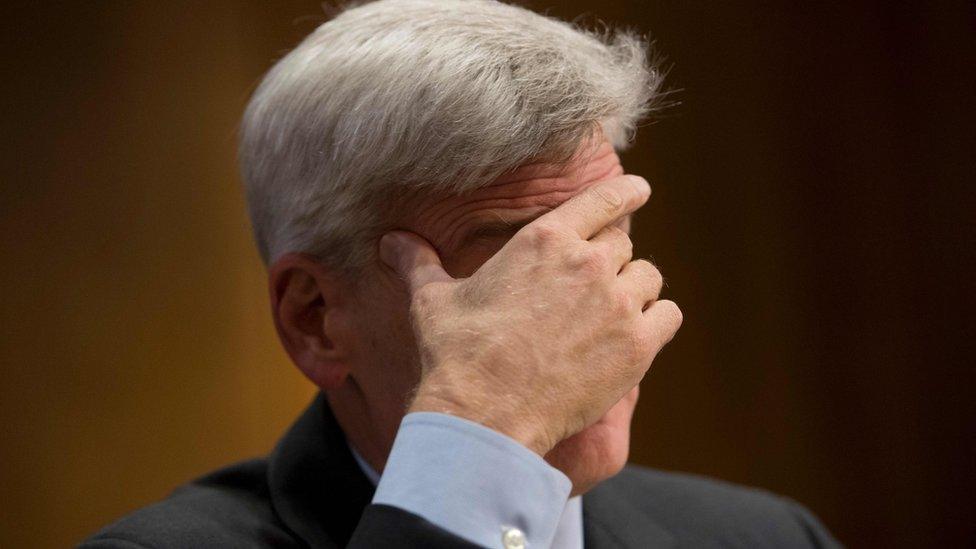
Senator Bill Cassidy, co-author of the bill
Ms Collins also said the bill weakened protections for people with pre-existing conditions.
She joined Republican Senators John McCain (Arizona) and Rand Paul (Kentucky) in rejecting the proposal.
Senator Ted Cruz of Texas has also withheld his support and demanded changes.
Heritage Action, a conservative policy group, said with resignation: "It appears that many Americans will remain stuck with Obamacare, at least for the time being."
Senators Lindsey Graham and Bill Cassidy, authors of the bill, had offered to boost federal healthcare funds by 43% in Maine.
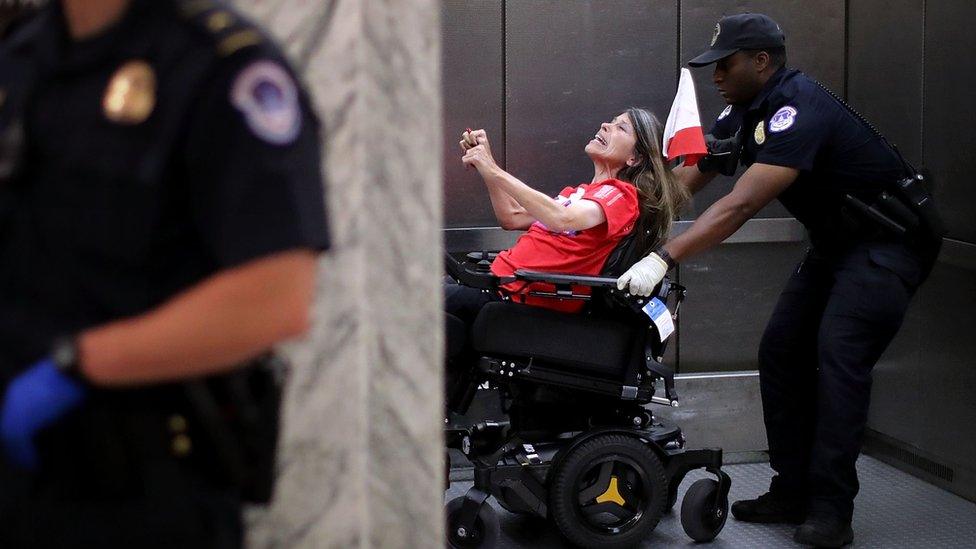
Police arrested 181 demonstrators as the Senate held its first hearing all year on the proposed Obamacare repeal
They have also dangled sweeteners for other states with wavering senators.
Republicans hold a slim 52-48 majority in the Senate and must pass the bill by more than 50 votes before a 30 September deadline.
Senate Majority Leader Mitch McConnell wanted to hold a vote this week, but that looks increasingly unlikely.
Ms Collins announced her opposition shortly after a damning assessment from the non-partisan Congressional Budget Office.
It said millions of people would lose coverage for high-cost medical events if the bill became law.
The CBO also found that federal spending on Medicaid would be cut by about $1tn (£750bn) from 2017-26.
The Senate held its first hearing all year on the proposed Obamacare repeal on Monday, but it was disrupted by protesters.
Police arrested 181 demonstrators.
The protesters, many of whom were in wheelchairs, were forcibly removed from the hearing room.
A new CBS poll released on Monday said 52% of Americans disapprove of the Graham-Cassidy bill, while 20% approve.
- Published20 September 2017
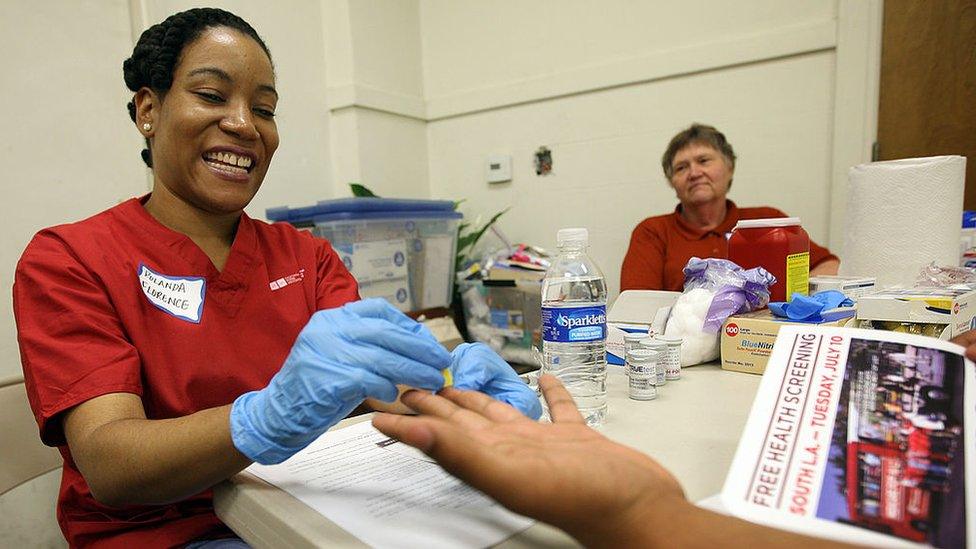
- Published3 July 2017
